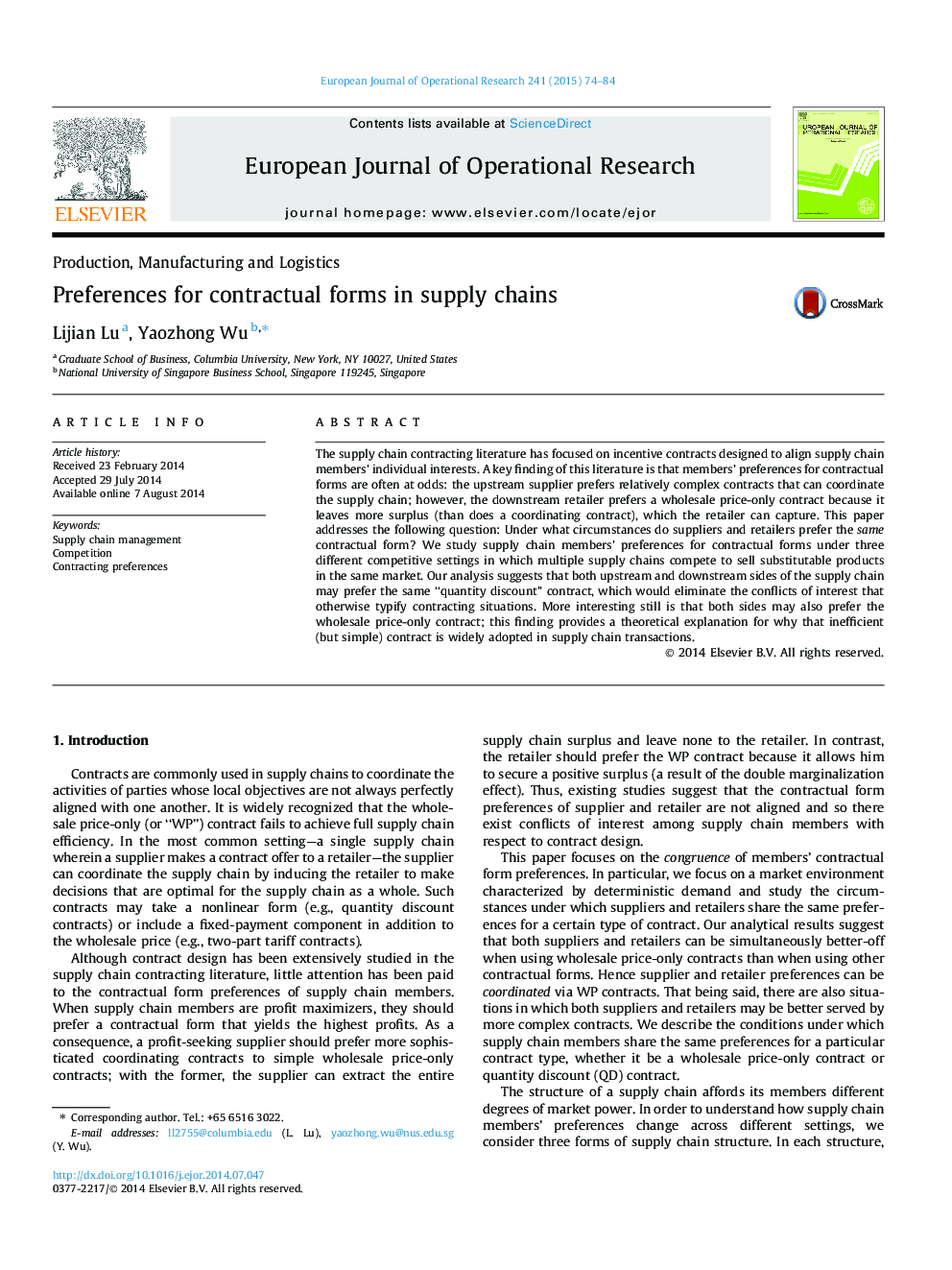| Article ID | Journal | Published Year | Pages | File Type |
|---|---|---|---|---|
| 479604 | European Journal of Operational Research | 2015 | 11 Pages |
•Upstream and downstream supply chain members’ preferences for contractual forms are not often aligned.•Supply chain members can have a congruent preference for contract type.•A seemingly inefficient wholesale price-only contract can be preferred by both sides of supply chains.•Supply chain structure is important in determining its members’ preferences for contractual forms.
The supply chain contracting literature has focused on incentive contracts designed to align supply chain members’ individual interests. A key finding of this literature is that members’ preferences for contractual forms are often at odds: the upstream supplier prefers relatively complex contracts that can coordinate the supply chain; however, the downstream retailer prefers a wholesale price-only contract because it leaves more surplus (than does a coordinating contract), which the retailer can capture. This paper addresses the following question: Under what circumstances do suppliers and retailers prefer the same contractual form? We study supply chain members’ preferences for contractual forms under three different competitive settings in which multiple supply chains compete to sell substitutable products in the same market. Our analysis suggests that both upstream and downstream sides of the supply chain may prefer the same “quantity discount” contract, which would eliminate the conflicts of interest that otherwise typify contracting situations. More interesting still is that both sides may also prefer the wholesale price-only contract; this finding provides a theoretical explanation for why that inefficient (but simple) contract is widely adopted in supply chain transactions.
